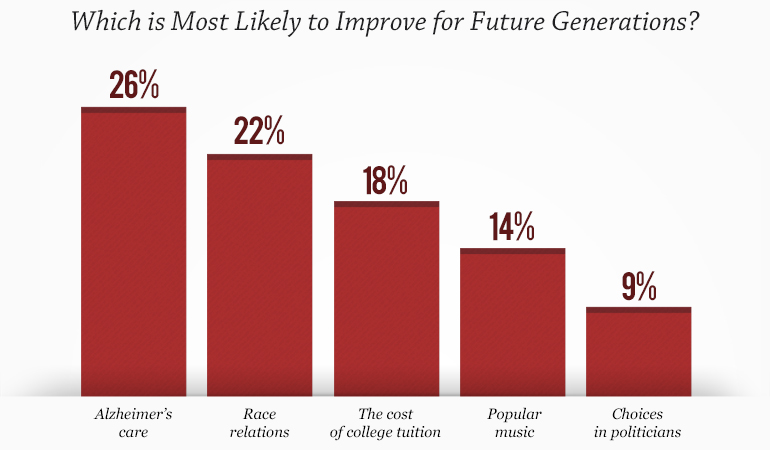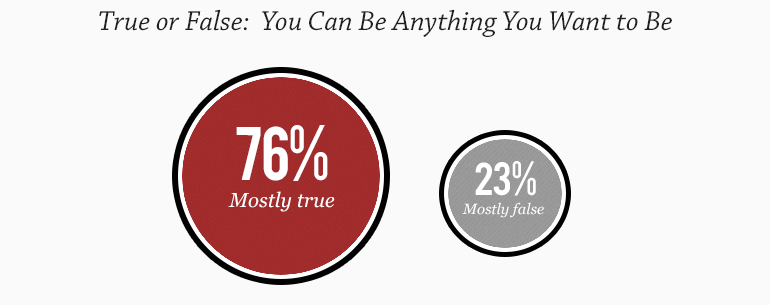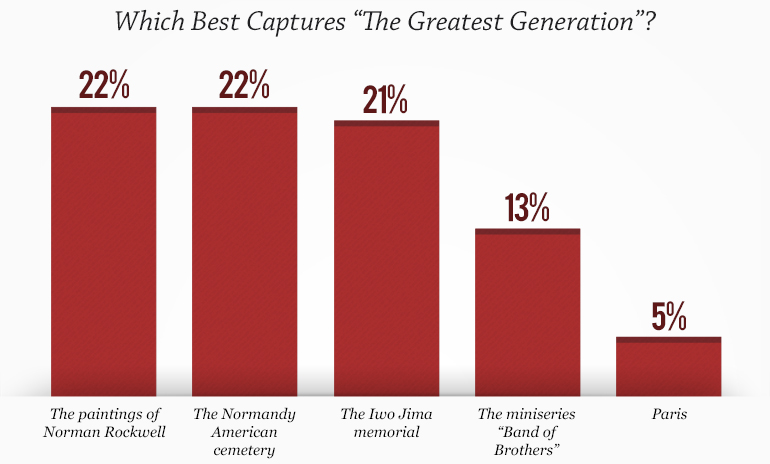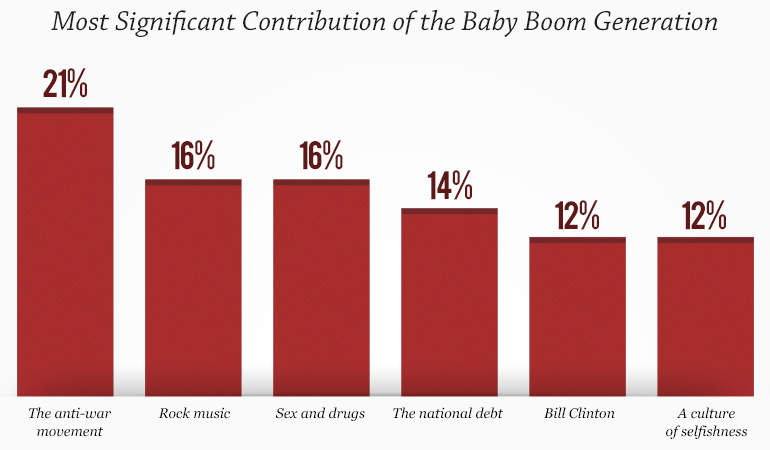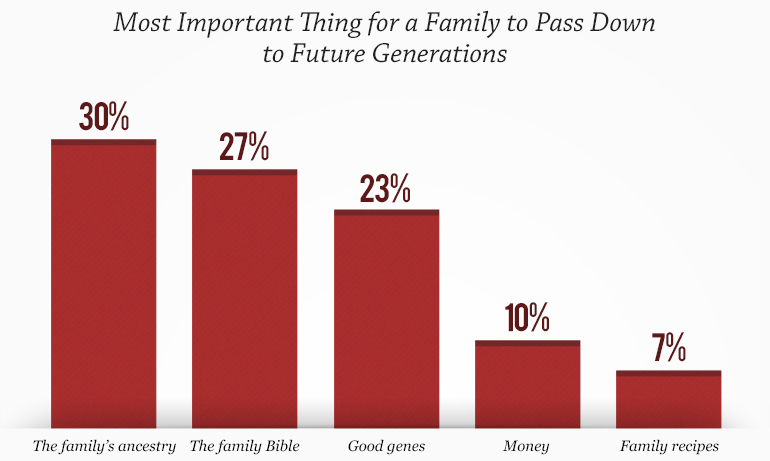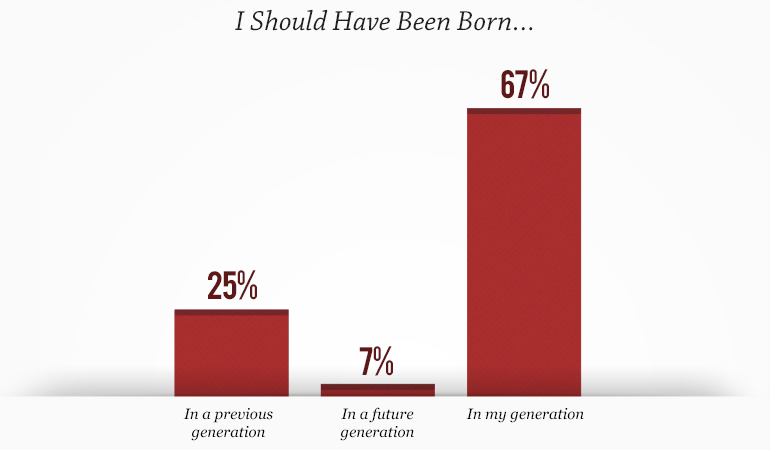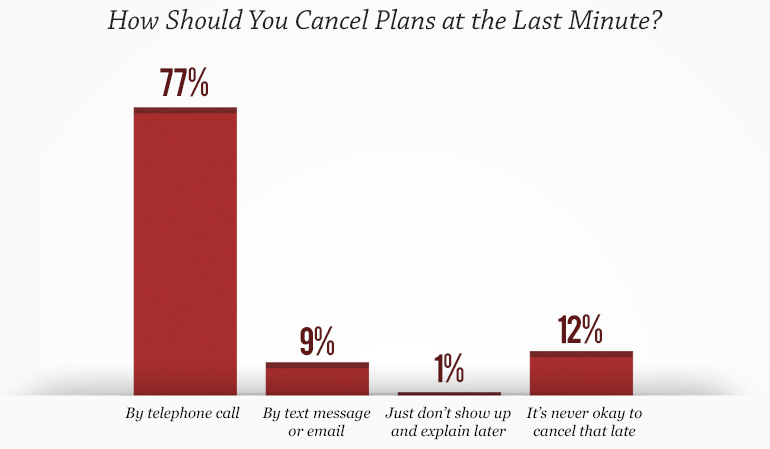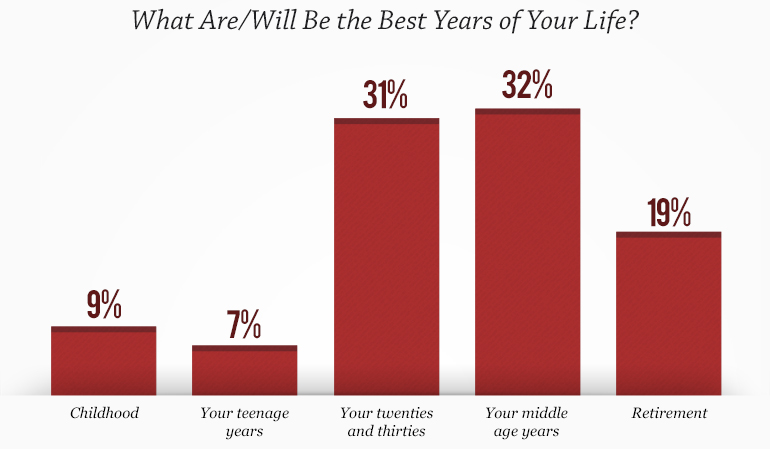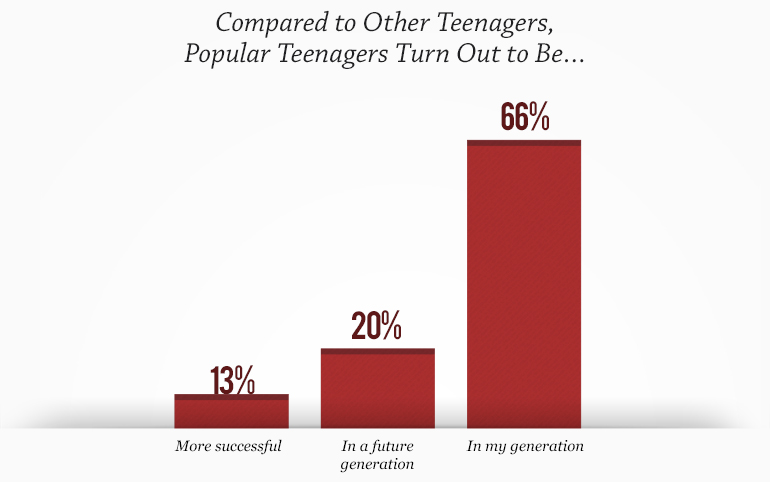60 Minutes/Vanity Fair poll: Generations
Welcome to the 60 Minutes/Vanity Fair poll for August 2016. This month's poll is about "Generations," in particular, the ones that have populated America for the last hundred years or so. Each generation shares experiences within a specific period of time. If you were born in the first two decades of the 20th century and lived through the greatest depression, fought through or endured what some say was the greatest war and came home to produce the greatest baby boom America had ever seen, some might call you the "Greatest Generation." After them came the aptly named "Silent Generation" who conformed to society's expectations and were followed by the "Baby Boomers" who did not. The Boomers spawned parts of two generations, Gen X and Y. Then there were the "Millennials." They have been described by author Ron Alsop as "trophy kids" (where everybody gets a trophy) and author David Burstein described them as "pragmatic idealists" who want to make the world a better place which will require building new institutions. Based on the current state of our two-party system many might advise them to "hurry up" already. It's too early to know what Gen Z (name not settled) will be known for other than being connected to one personal device or another 24/7. What things do you think are most likely to get better for future generations? We look forward to your opinions and answers, and now the results....
From an eclectic variety of choices, one in four Americans think that Alzheimer's care is the most likely to get better for future generations. Next in order were race relations 22 percent, the cost of college tuition 18 percent and popular music 14 percent. Not surprisingly in this the summer of our political discontent, only 9 percent think that our choices in politicians will improve for our future generations.
When an older person tells a person from a younger generation that they can be anything they want to be, three out of four Americans think that what they are saying is still mostly true and almost one in four don't think so. Women are slightly more optimistic than men (80 percent vs 72 percent). The key word in the question is "can." America is still the land of opportunity and people of all kinds can do amazing things, but "will" they? It's getting more difficult for some of our citizens to achieve their version of the American Dream but if you possess a burning desire and a willingness to work very hard, America still gives you your best shot.
Six out of 10 Americans would trust an established business with a long record of success over a new innovative business (34 percent) with a more recent record of success to get the same job done. It's not so much "the devil you know" in business as it is a desire to minimize financial risk. Newer businesses should take heart that a third of Americans would give the scrappy upstart the business, that's a solid slice of the pie.
So what best captures "The Greatest Generation"? From the choices provided, 22 percent of Americans chose a poignant emblem of their sacrifice, The American Cemetery in Normandy and another 22 percent chose the iconic images of Norman Rockwell's paintings. Next in order were The Iwo Jima Memorial 21 percent, the miniseries "Band of Brothers" 13 percent and 5 percent said "we'll always have Paris." The immortal bard may have summed up this generation's place in history best, "some are born great, some achieve greatness, and some have greatness thrust upon them."
What is the most significant contribution to America from the offspring of the "Greatest Generation" mostly known as the "Baby Boomers"? From a far less noble list of choices than their parents got, 21 percent said the anti-war movement followed by rock music 16 percent,sex and drugs 16 percent, the national debt 14 percent Bill Clinton 12 percent and a culture of selfishness 12 percent. If this is really part of the "Boomers" legacy then maybe their parents generation finally found something they weren't the "greatest" at... parenting.
When it comes to the order of importance of things that are passed down from one generation to the next, Americans chose their family's ancestry 30 percent, the family Bible 27 percent, good genes 23 percent, money 10 percent and family recipes 7 percent. All of these are important in that they create a connection between the generations. Ancestry is especially important because people not only inherit important ethnic and cultural traits but they are also provided with a trove of rich family stories and the collected memories of their ancestors that they in turn can pass on to their children.
Two out of three Americans echo the song by The Who and say "this is my generation, baby." One in four think they might have fit better in a previous generation and only 7 percent think they were born too soon and should have lived in a future generation. There are always some who yearn for the simplicity and nostalgia of generations past, but it's good to know a strong majority of Americans feel they are right where they are meant to be.
When it comes to having to cancel plans with just a few hours notice, more than three out of four Americans would make a phone call. 12 percent said it's never okay to cancel that late, 9 percent think it would be appropriate to either text or email their regrets and only 1 percent said they would pull a no show and explain later. Assuming there is a good reason for canceling, it is refreshing that so many people would go "old school" and use the phone. Speaking with someone personally is the best way to convey genuine remorse and give maximum notice. Even those most likely to be serial texters aged 18-34 (72 percent) would overwhelmingly choose to drop a dime to express their regrets.
When asked what they think the best years of their lives will turn out to be, Americans are evenly divided between their middle age years 32 percent and their twenties and thirties 31 percent. One out of five said retirement , 9 percent said childhood and only 7 percent guessed their teenage years would turn out to be the best. There is no one size fits all definition of "best."
According to two out of three Americans, being popular as a teenager makes no difference in how successful you will become as an adult. One in five think it will actually make you less successful and 13 percent said more successful. Again, it all depends on your definition of "success." We all have goals and dreams and no one totally succeeds or fails in life. If you have loved and been loved, you have succeed in the most important way.
60 Minutes/Vanity Fair poll: Generations by News Team on Scribd
